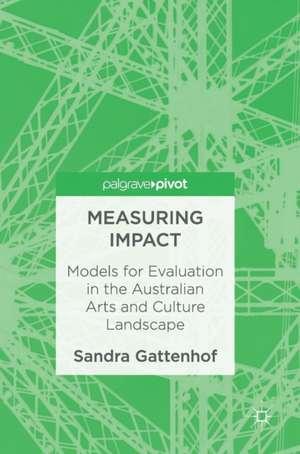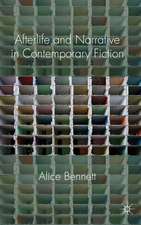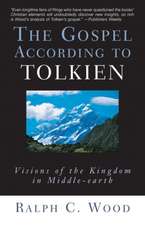Measuring Impact: Models for Evaluation in the Australian Arts and Culture Landscape
Autor Sandra Gattenhofen Limba Engleză Hardback – 31 oct 2015
This book investigates the relationship developed between the researcher/evaluator and the commissioning arts and cultural producer in providing an opportunity to rethink the traditional process of reporting back on value and impact through the singular entity of funds acquittal. Using three commissioned evaluations as examples, the discussion outlines the two positions most often adopted by researchers/evaluators, external and distanced or embedded and collaborative, and will argue the merits and deficiencies of the two approaches. This text also investigates the role of the researcher/evaluator as a broker of stakeholder interests; how cultural organizations can partner in data gathering and develop a participatory approach to the research; what role the researcher/evaluator can have in the dissemination of evaluation findings and recommendations; and makes recommendations on which partnership type is more affective in a commissioned evaluation model for an arts and culture organization in the Australian landscape.
Preț: 380.45 lei
Nou
Puncte Express: 571
Preț estimativ în valută:
72.81€ • 75.73$ • 60.11£
72.81€ • 75.73$ • 60.11£
Carte tipărită la comandă
Livrare economică 15-29 aprilie
Preluare comenzi: 021 569.72.76
Specificații
ISBN-13: 9781137472861
ISBN-10: 1137472863
Pagini: 96
Ilustrații: IX, 78 p.
Dimensiuni: 148 x 210 x 14 mm
Greutate: 0.24 kg
Ediția:1st ed. 2017
Editura: Palgrave Macmillan UK
Colecția Palgrave Pivot
Locul publicării:London, United Kingdom
ISBN-10: 1137472863
Pagini: 96
Ilustrații: IX, 78 p.
Dimensiuni: 148 x 210 x 14 mm
Greutate: 0.24 kg
Ediția:1st ed. 2017
Editura: Palgrave Macmillan UK
Colecția Palgrave Pivot
Locul publicării:London, United Kingdom
Cuprins
Introduction.- Chapter 1. Evaluation Types and Trends.- Chapter 2. The Need to Determine Value and Impact.- Chapter 3. Evaluation Within the Australian Landscape.- Chapter 4. Reframing the Position of the Evaluator.- Chapter 5. Three Approaches to Arts and Culture Evaluation.- Chapter 6. A Third Way of Evaluating and Reporting.- Conclusion.- Works Cited.- Notes.-
Notă biografică
Sandra Gattenhof is Head of Drama in the Creative Industries Faculty, Queensland University of Technology, Australia. She specializes in arts evaluation, drama/arts in schools and communities, postdramatic theatre and contemporary performance for children and young people. Her previous publications include Drivers of Change: Contemporary Theatre for Young People (Drama Australia, 2006) and articles in journals such as the Journal of Arts & Communities, Journal of Drama and Theatre Education in Asia, Health Promotion International and Journal of Applied Arts and Health, amongst others.
Textul de pe ultima copertă
This book investigates the relationship developed between the researcher/evaluator and the commissioning arts and cultural producer in providing an opportunity to rethink the traditional process of reporting back on value and impact through the singular entity of funds acquittal. Using three commissioned evaluations as examples, the discussion outlines the two positions most often adopted by researchers/evaluators, external and distanced or embedded and collaborative, and will argue the merits and deficiencies of the two approaches. This text also investigates the role of the researcher/evaluator as a broker of stakeholder interests; how cultural organizations can partner in data gathering and develop a participatory approach to the research; what role the researcher/evaluator can have in the dissemination of evaluation findings and recommendations; and makes recommendations on which partnership type is more affective in a commissioned evaluation model for an arts and culture organization in the Australian landscape.
Sandra Gattenhof is Head of Drama in the Creative Industries Faculty, Queensland University of Technology. Sandra specialises in drama/arts in schools & communities, postdramatic theatre and contemporary performance for children and young people. She is a former Vice President of the International Drama/Theatre and Education Association (IDEA); Drama Australia President and its Director of Arts Education and Industry Partnerships; Drama Queensland President; and a Chair or Board member of a number of youth arts organizations at national and state levels. In 2011 Sandra was recipient of QUT Creative Industries Faculty Dean’s Award for Excellence in Research and Innovation and in 2012 was awarded Drama Queensland Life Member Award for Longstanding Contribution to the Drama Community.
Caracteristici
Challenges received wisdom which privileges economic impact over ‘soft data’ about community experience and engagement, and in doing so broadens the discussion beyond fiscal markers of impact Demonstrates how cultural value and impact can be evaluated, and rethinks the traditional process of reporting back on value Looks at the issue from a variety of angles by considering three different commissioned evaluations as examples













